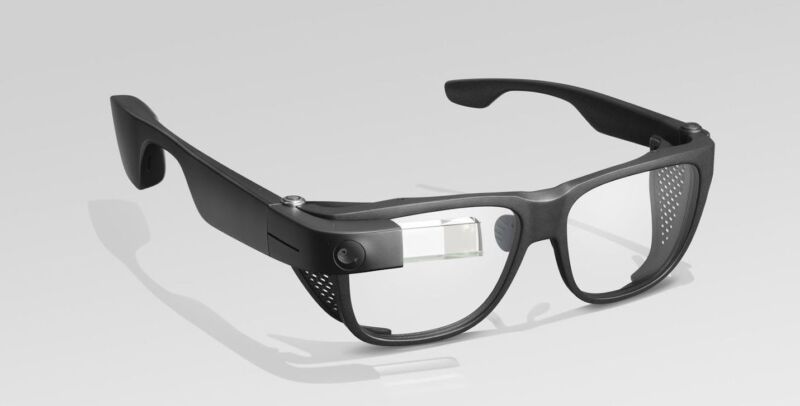
Google engineers are developing a new augmented reality (AR) headset, according to a report by The Verge citing two people familiar with the project.
Google hopes to ship the product—codenamed "Project Iris"—sometime in 2024, but that date is likely not set in stone.
Like Apple's rumored mixed reality glasses, Project Iris would be wireless and use external cameras to send an augmented image of the real world to you. And like one of the devices Apple has reportedly worked on, the glasses would leave the heavy-duty graphics processing to an external computer. In Google's case, the device will rely on cloud computing instead of nearby hardware.
The sources say that the current prototypes of the device "resemble a pair of ski goggles."The Verge's sources say that about 300 people are working on the top-secret project at Google, including some members of the Pixel team. The project is led by Google's VP of Labs, Clay Bavor, who has been heavily involved in several past AR/VR/XR projects over the years.
Those projects include Google Lens, ARCore, and the recently revealed Project Starline. Project Starline is a high-resolution video call and telepresence booth that uses both 3D sensors and 3D display technology to create the illusion that the person you are speaking with remotely is sitting directly in front of you in physical space. Starline is also targeting a 2024 launch, and it is being deployed at some Fortune 500 companies and internally at Google in a trial program.
As is common with R&D projects (and especially at Google), many of the projects Bavor has led have not turned into mainstream products. That might end up being the case here, too.
On the other hand, Google is now part of an ongoing mixed reality technology arms race. Facebook has rebranded itself as Meta and is treating this kind of technology as its future core business. Meanwhile, Apple is working on a mixed reality and AR platform, with multiple products in the pipeline. And other big tech companies like Microsoft are investing heavily in telepresence and AR.
Google's history with this kind of technology runs deep, too. For example, the company introduced its Google Glass AR headset in 2012. Glass failed as a consumer product but is still used in an enterprise context. And Google last year acquired smart glasses maker North.
Other key people involved in Project Iris include the senior engineering director in charge of ARCore (Shahram Izadi), the senior engineering director who used to be responsible for Google Lens (Eddie Chung), Google Assistant creator Scott Huffman, former Lytro CTO Kurt Akeley, and former Facebook/Meta AR software leader Mark Lucovsky.
Listing image by Google
reader comments
130